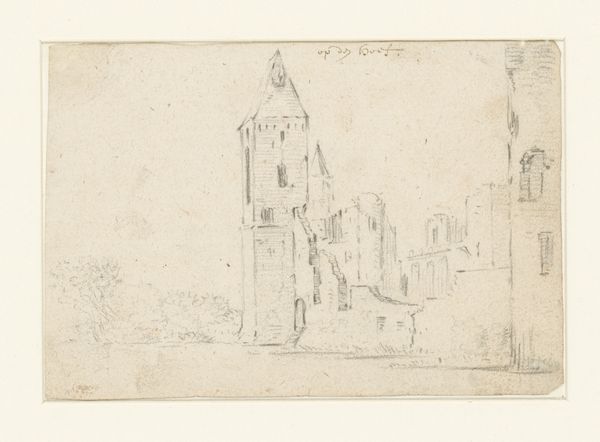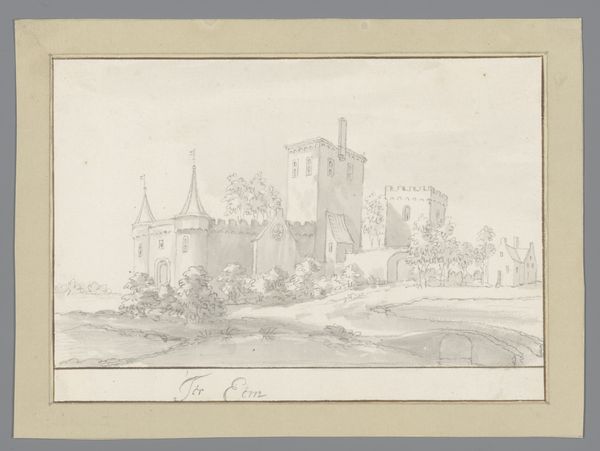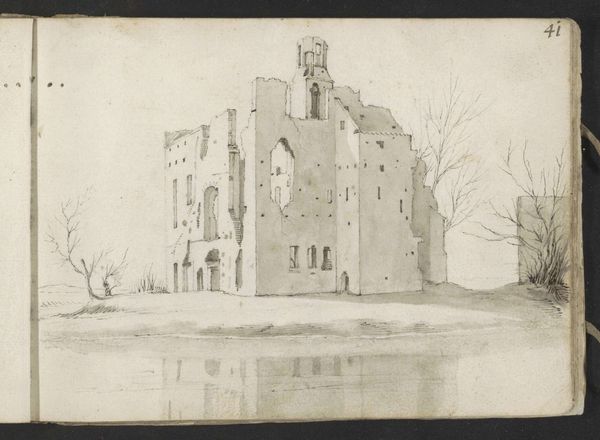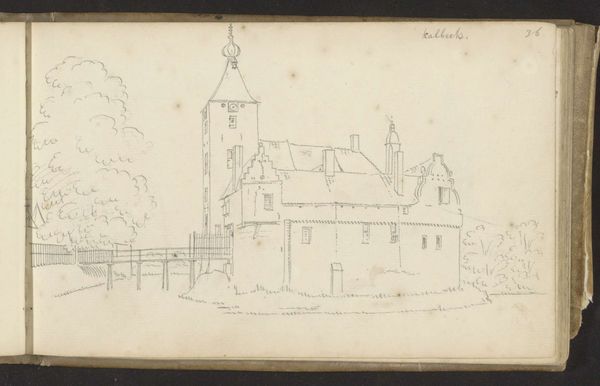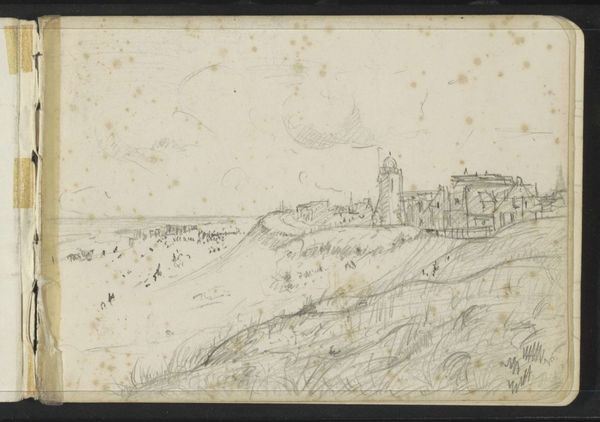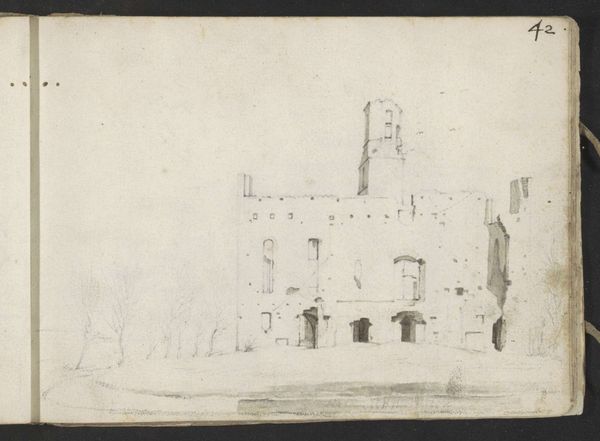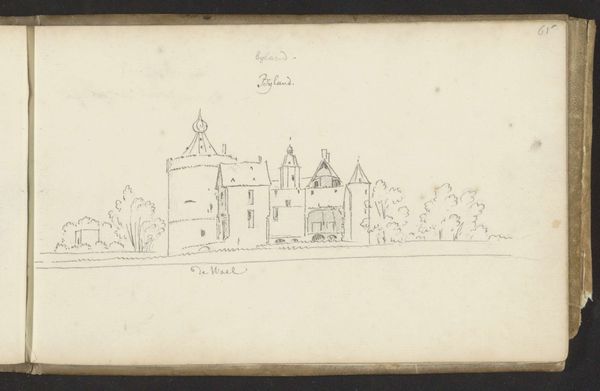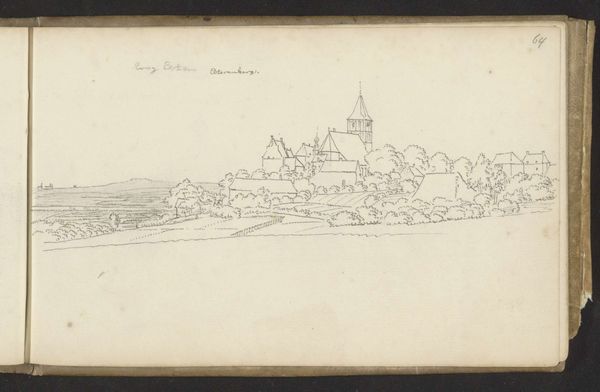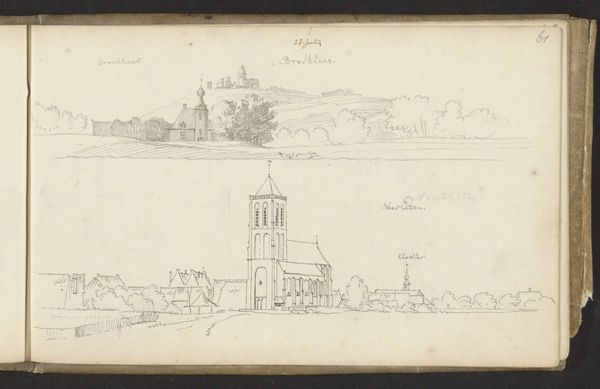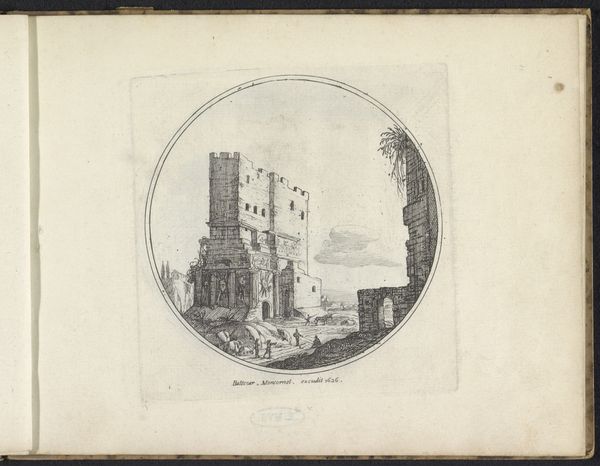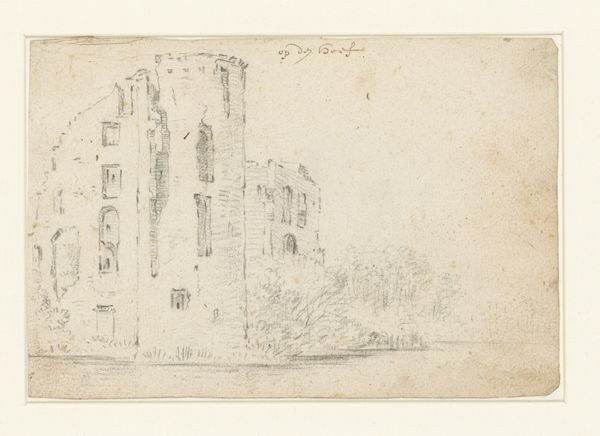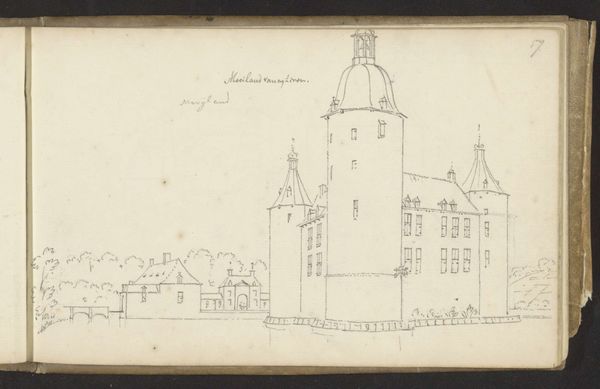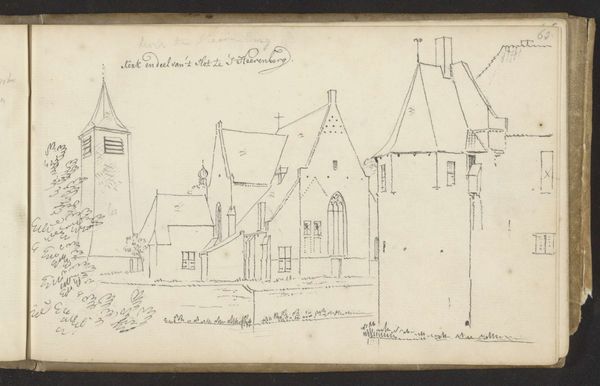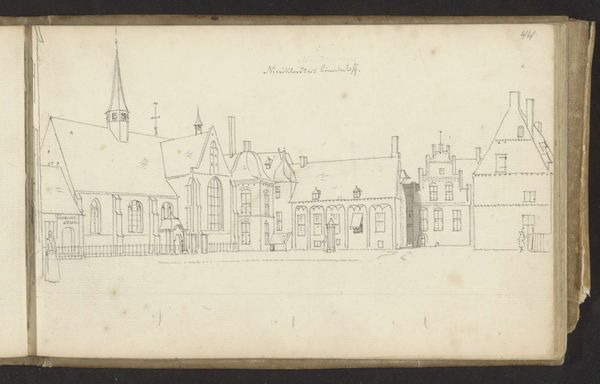
drawing, ink, pen
#
drawing
#
aged paper
#
toned paper
#
quirky sketch
#
dutch-golden-age
#
sketch book
#
landscape
#
personal sketchbook
#
ink
#
sketchwork
#
pen-ink sketch
#
sketchbook drawing
#
pen
#
genre-painting
#
storyboard and sketchbook work
#
sketchbook art
Copyright: Rijks Museum: Open Domain
Editor: Here we have Abraham de Haen the second's "Vospoort te Goch," a pen and ink drawing from 1731. It’s amazing how much detail he gets with so few lines. It feels almost dreamlike. What catches your eye about this sketch? Curator: This seemingly simple sketch holds a wealth of cultural memory. Notice the deliberate rendering of the gate, the “Vospoort.” Gates, throughout history, have been more than mere entrances; they are symbolic thresholds, representing shifts between safety and the unknown, control and freedom. Editor: So the gate itself carries significance? Curator: Absolutely. Consider the psychology of boundaries. Walls and gates delineate “us” from “them,” order from chaos. In 18th-century Dutch culture, clarity and order were highly valued. The sketch, therefore, captures not just a place, but also a mindset, a cultural aspiration. How does this interplay of architectural symbol and cultural value resonate with you? Editor: I see what you mean. It’s like the gate becomes a container for those values. Looking at it that way, it seems like such a loaded image. Curator: Precisely! Even the medium – pen and ink – lends itself to permanence, echoing the enduring nature of the values embedded within the image of the gate itself. It invites contemplation on how structures reflect and reinforce the societies that build them. Editor: It’s amazing how a simple drawing can open up so many layers. I'll definitely look at sketches differently now. Curator: Indeed. Now you might recognize that a simple pen stroke may echo the weight of a cultural paradigm.
Comments
No comments
Be the first to comment and join the conversation on the ultimate creative platform.
